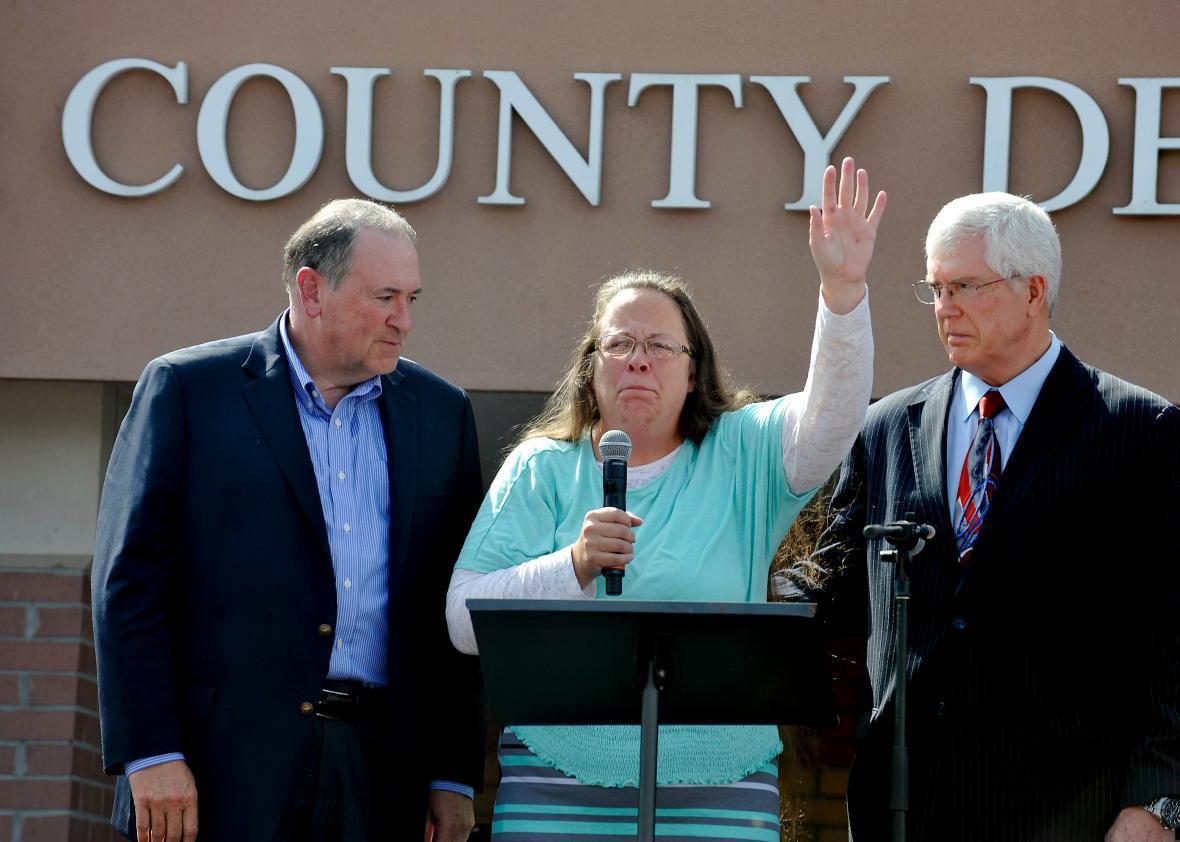The race for the 2016 presidential nomination is increasingly serving to highlight key divisions between the powerful Republican donor class and the Republican voting and activist base. Using recently released Cooperative Congressional Election Study data (an election year survey with more than 50,000 respondents) from 2014, we found that same-sex marriage is an issue that splits the more cosmopolitan and business-friendly Republican donor class from the party’s more socially conservative base. We also learned that off-cycle elections may hamper progress on gay rights by bringing out a more conservative, whiter, and older electorate.
The CCES allows us to compare the attitudes of non-donors who identify as Republican and Democrat, as well as small donors (those who give less than $1,000) and large donors (who give more than $1,000). We found that among Democratic donors there is more support for gay marriage than among non-donors. This is in line with the literature on donors: They tend to be more strongly partisan than non-donors. On the Republican side, however, an interesting pattern emerges. Small Republican donors are more conservative—in line with the observation that donors tend to be more extreme—while large donors are far more supportive of gay rights (44 percent in favor, compared with 28 percent of small donors).
If donors are more ideological, why do big donors on the Republican side buck that trend and espouse more moderate views on gay marriage? A 2010 study by political scientists Brittany Bramlett, James Gimpel, and Frances Lee offers hints. They found that when they are seeking donations, politicians—from both parties—tend to focus on a small number of high-wealth neighborhoods that exhibit “cosmopolitan” views. These neighborhoods tend to be more socially progressive, but they are also more likely to support business-friendly, free-trade policies.
Although the majority of big Republican donors oppose gay marriage, they may be inclined to ignore or downplay the issue in order to focus on things they perceive as more important. Small Republican donors may be less willing to do so. In a 2011 study of small donors, large donors, and non-donors conducted by the Campaign Finance Institute, respondents from six states were asked to rank priorities on a scale of 1 to 4. Among the issues where the biggest differences between non-donors, small donors, medium donors, and large donors were revealed are gay rights and abortion. This suggests that large donors would be more willing to downplay those issues in favor of subjects they see as more salient—like taxes and trade.
The CCES data has another lesson that will be especially resonant for proponents of gay rights: In 2014, 58 percent of non-voters supported gay rights, compared with 54 percent of voters. This suggests that high-turnout elections are advantageous for gay rights advocates. Last month in Houston, a key equal rights ordinance supported strongly by the LGBTQ community lost in a low-turnout, off-cycle election. Although turnout was only one of many contributing factors in that race, it’s important to note that low-turnout environments will be less favorable of gay rights legislation. Republicans who did not vote in 2014 are slightly more likely to support gay marriage than those who did.
The gay rights debate, then, holds important lessons for American politics. First, it illustrates key divides on the right, between cosmopolitan elite donors within the Republican Party and the Republican base. (Democratic donors are slightly more favorable to gay marriage than Democratic voters, but the gap isn’t as large as on the right.) With other issues where such divides might also show up—abortion and immigration, for instance—increasingly important in 2016, this rift may grow wider. Already, three candidates (Sen. Ted Cruz, Sen. Rick Santorum, and Dr. Ben Carson) signed a National Organization for Marriage pledge to support a constitutional amendment prohibiting gay marriage. Other candidates have endorsed such a view, although others, like Sen. Lindsey Graham, have essentially given up the fight. Stories like that of Kentucky county clerk Kim Davis may continue to serve as wedge issues for the party in the future.
Second, the data suggest that when elections do not coincide with a presidential vote, voters are likely to be older, whiter, and more conservative, so those elections will be less favorable environments for proponents of gay rights. LGBTQ rights supporters should therefore push for pro-gay ballot initiatives in presidential election years.
As 2016 approaches, Republicans will increasingly be at a crossroads: Small donors and voters are overwhelmingly opposed to gay marriage, while marginally attached Republicans and the elite donor class are somewhat more supportive. The donor class, seeing the popularity of gay rights, is increasingly willing to relegate the issue to the dustbin. But will the base?
